Specific English. Грамматические трудности перевода - [12]
on you. Я оказываю на вас дурное влияние. I’m afraid, Father, I’ve been a disappointment to you.
Боюсь, что я разочаровал вас, отец. She’s absolutely no use. От нее нет абсолютно никакого толку. Aren’t you a perfect disgrace? Ну, не стыдно ли вам?
I. Переведите следующие предложения, обращая внимание на многозначность глагола to be.
1. Не is not a young man. 2. His desk is in the middle of the room. 3. A real hotel is for hospitality. 4. The ’t’ was for Tanya – Tanya Livingston, a special friend of Mel’s. 5. I’ve been to London twice. 6. «Tell me about the others in your family.» «There are Hans and Peter, the twins.» «I suppose Hans and Peter are at school.» «Yes; and the house is much quieter when they are at school than when they are at home.» 7. Stay where you are. Don’t move! 8. Her family had been in Gibbsville a lot longer than the great majority of the people who lived in Lantenengo Street. 9. Since it was Friday night, the beginning of a weekend, most were casually dressed, though exceptions were half a dozen visitors from outside the community and several press reporters. 10. The Douro region is where port-wine comes from. 11. «How are you?» «I’m quite well.» 12. Ashenden had been to France in order to write and dispatch a report. 13. The question is, shall I appear in it myself? 14. There Riley left me with orders to stay put: he wouldn’t be more than an hour. 15. The funeral service is tomorrow at 11 a. m. from the Chapel of Rest. 16. She’d never been East.
П. А. Переведите следующие предложения, в которых значение глагола to be выявляется в определенных сочетаниях.
1. Harris Boulton had been to school and university with Tom. 2. They had been on a motoring holiday in Canada. 3. «Where the hell» – she was on her knees poking under the bed. 4. The rest of the afternoon we were east and west worming out of reluctant grocers cans of peanut butter, a wartime scarcity. 5. She was through the doors before I recognised her. 6. The words were hardly out of her mouth before he had sprung upon her and snatched the revolver out of her hand. 7. And Leo too was suddenly there, through the door and into the large hall-like room. 8. He was the first through the customs, and before the other passengers arrived, he could arrange with the guard for a sleeping compartment to him self. 9. If children are clever, they continue to receive free education until they are eighteen, and even while they are at the university. 10. She was almost to the corner when his voice stopped her. 11. He was conscious that the watchful eyes of Prince AH were upon him. 12. She was four years out of college then, and twenty-seven years old. 13. The meeting was enthusiastically with him now. 14. His hands were firmly on the attachй-case. 15. I had been out of the Army about a month when I decided to drive from San Francisco to my home town before summer ended. 16. She was masticating dreamily, but her eyes were on the boy. 17. Suddenly Andrew heard his name called wildly and the next instant Christine’s arms were about his neck.
Б. Переведите на английский язык, употребляя глагол to be.
1. Его стол стоит слева. 2. Это объявление висело на двери. 3. Бывали ли вы когда-нибудь в других странах? 4. Помнишь Маргарет Филд, девушку, которая вместе с нами училась в колледже? 5. Это лето я провел в Крыму. 6. Он приходил сюда на (for) банкет. 7. Некоторые ветераны проработали в (with) отеле по 25 лет. 8. Причина заключалась в том, что он внезапно заболел. 9. Они стояли рядом. 10. Его речь о национальном планировании была обращена к конгрессу. 11. Все эти деликатесы предназначаются для завтрашнего банкета. 12. Задача заключается в том, чтобы устранить эти недостатки как можно скорее. Он учится в университете, собирается стать врачом. Исключения составляют следующие слова… 15. Трудность состояла в том, что у нас оставалось слишком мало времени. 16. Его мать сидела у окна. 17. Дело в том, что невозможно не любить (to dislike) его.
III. Дайте свои варианты перевода сочетаний to be с прилагательным или причастием в следующих предложениях.
1. Don’t be absurd. 2. I had forgotten you were so literal. 3. You’re being very offensive. 4. He was properly apologetic for disturbing Rose. 5. If you were not so drunk and insulting, I would explain everything. 6. Of course he was bitter at her long neglect, of course he was mistrustful of her sudden love. 7. Don’t be ridiculous. 8. Joseph was insistent that his wishes were carried out. 9. But she was hopeful that she might meet someone she knew. 10. There’s one point I’m not clear about. 11. Stan had been helpful also. At Peter’s request he had made inquiries about the two youths. 12. It was very bewildering. 13. At home, Natalie was understanding and, as always, loving. 14. Some people were making remarks out loud about how slow I was. 15. Co-ordinated, high-level planning, either national or international, was non-existent. 16. It was a job the clerks all hated because people whom they called were invariably bad-tempered and frequently abusive. 17. Well, I do sometimes get a little scolding. I’m told I’ve been naughty, and not to do it again. 18. Customs men were aware that most returning travellers did a little smuggling, and were often tolerant about it. 19. Mrs Hudson was hysterical. She threw herself on her husband, screaming and crying, and they had to drag her away. 20. «How was school today?» «Could you be specific, Father? There were several classes. Which do you want to know about?» 21. Libby was always breathless as if, to her, life was excitingly on the run and she must forever keep pace or be left behind. 22. The knowledge was disquieting 23. Don’t be so nasty. 24. He’s very reticent about his war experiences. 25. I had a notion that she was nervous. 26. Oh, Larry, don’t be funny. This is desperately serious. 27. With its mahogany furniture, its shabby leather chairs, and its musty smell, it was strangely reminiscent of a coffee-room in a Dickens novel. 28. Let’s be sensible. 29. For the time being they were more or less friendly again. 30. «Don’t be foul!» said Dorothy and he begged her pardon. 31. «But do you think it could ever be permitted?» He was persistent. 32. It is inconsiderate of you to live in Highgate. To your friends who are central, I mean. 33. But Mr Walters was quite unexpected. 34. What exactly was Bennie Hyman being so mysterious about this morning? 35. Dr Hubble was explanatory. He talked for quite a long time in language appropriate to the ear of the intelligent layman. 36. He was extremely apologetic. 37. She was so terribly good to Fanny. 38. By the time she reached the kitchen the rain was heavier and her hair was plastered to her head. 39. He was clear that whatever the outcome of that argument he would stay no longer at Grayhallock. 40. Women were still hesitant about taking on greater responsibility. 41. Verena had been very bitter over this. 42. I told Verena you would be lonesome. 43. He was easy with his money, he never minded paying a round of drinks for his friends. 44. He could be boisterous in act and loud in laughter. 45. Jon heard her clear voice in the dining-room, «Oh, I’m simply ravenous!»
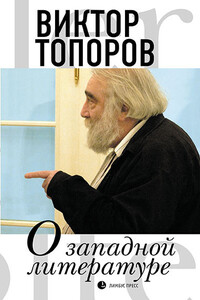
Виктор Топоров (1946–2013) был одним из самых выдающихся критиков и переводчиков своего времени. В настоящем издании собраны его статьи, посвященные литературе Западной Европы и США. Готфрид Бенн, Уистен Хью Оден, Роберт Фрост, Генри Миллер, Грэм Грин, Макс Фриш, Сильвия Платт, Том Вулф и многие, многие другие – эту книгу можно рассматривать как историю западной литературы XX века. Историю, в которой глубина взгляда и широта эрудиции органично сочетаются с неподражаемым остроумием автора.
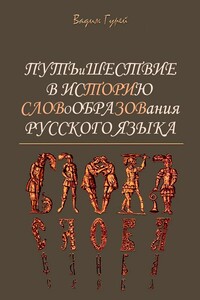
Так как же рождаются слова? И как создать такое слово, которое бы обрело свою собственную и, возможно, очень долгую жизнь, чтобы оставить свой след в истории нашего языка? На этот вопрос читатель найдёт ответ, если отправится в настоящее исследовательское путешествие по бескрайнему морю русских слов, которое наглядно покажет, как наши предки разными способами сложения старых слов и их образов создавали новые слова русского языка, древнее и богаче которого нет на земле.
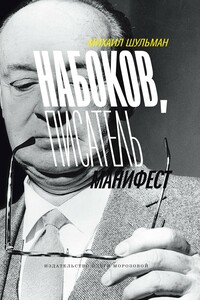
Набоков ставит себе задачу отображения того, что по природе своей не может быть адекватно отражено, «выразить тайны иррационального в рациональных словах». Сам стиль его, необыкновенно подвижный и синтаксически сложный, кажется лишь способом приблизиться к этому неизведанному миру, найти ему словесное соответствие. «Не это, не это, а что-то за этим. Определение всегда есть предел, а я домогаюсь далей, я ищу за рогатками (слов, чувств, мира) бесконечность, где сходится все, все». «Я-то убежден, что нас ждут необыкновенные сюрпризы.
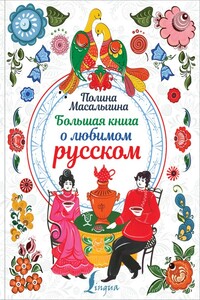
Содержание этой книги напоминает игру с огнём. По крайней мере, с обывательской точки зрения это, скорее всего, будет выглядеть так, потому что многое из того, о чём вы узнаете, прилично выделяется на фоне принятого и самого простого языкового подхода к разделению на «правильное» и «неправильное». Эта книга не для борцов за чистоту языка и тем более не для граммар-наци. Потому что и те, и другие так или иначе подвержены вспышкам языкового высокомерия. Я убеждена, что любовь к языку кроется не в искреннем желании бороться с ошибками.
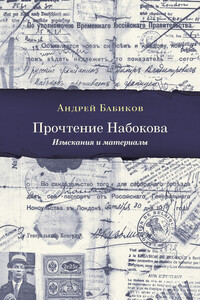
Литературная деятельность Владимира Набокова продолжалась свыше полувека на трех языках и двух континентах. В книге исследователя и переводчика Набокова Андрея Бабикова на основе обширного архивного материала рассматриваются все основные составляющие многообразного литературного багажа писателя в их неразрывной связи: поэзия, театр и кинематограф, русская и английская проза, мемуары, автоперевод, лекции, критические статьи и рецензии, эпистолярий. Значительное внимание в «Прочтении Набокова» уделено таким малоизученным сторонам набоковской творческой биографии как его эмигрантское и американское окружение, участие в литературных объединениях, подготовка рукописей к печати и вопросы текстологии, поздние стилистические новшества, начальные редакции и последующие трансформации замыслов «Камеры обскура», «Дара» и «Лолиты».
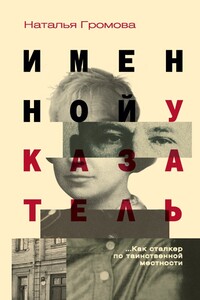
Наталья Громова – прозаик, историк литературы 1920-х – 1950-х гг. Автор документальных книг “Узел. Поэты. Дружбы. Разрывы”, “Распад. Судьба советского критика в 40-е – 50-е”, “Ключ. Последняя Москва”, “Ольга Берггольц: Смерти не было и нет” и др. В книге “Именной указатель” собраны и захватывающие архивные расследования, и личные воспоминания, и записи разговоров. Наталья Громова выясняет, кто же такая чекистка в очерке Марины Цветаевой “Дом у старого Пимена” и где находился дом Добровых, в котором до ареста жил Даниил Андреев; рассказывает о драматурге Александре Володине, о таинственном итальянском журналисте Малапарте и его знакомстве с Михаилом Булгаковым; вспоминает, как в “Советской энциклопедии” создавался уникальный словарь русских писателей XIX – начала XX века, “не разрешенных циркулярно, но и не запрещенных вполне”.